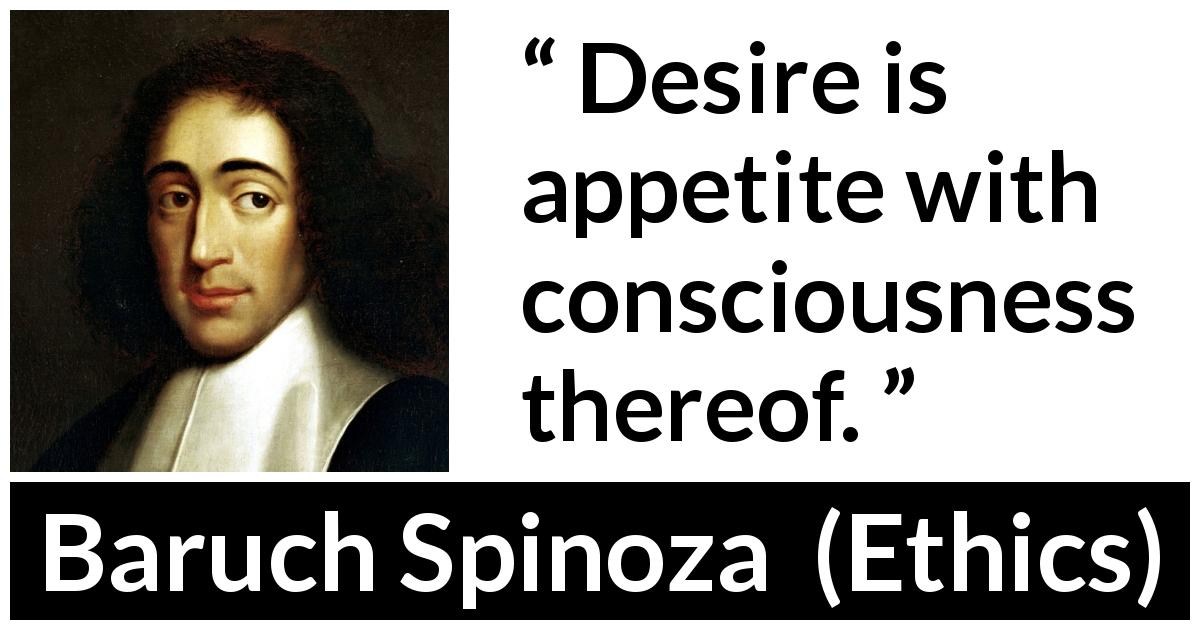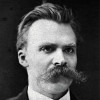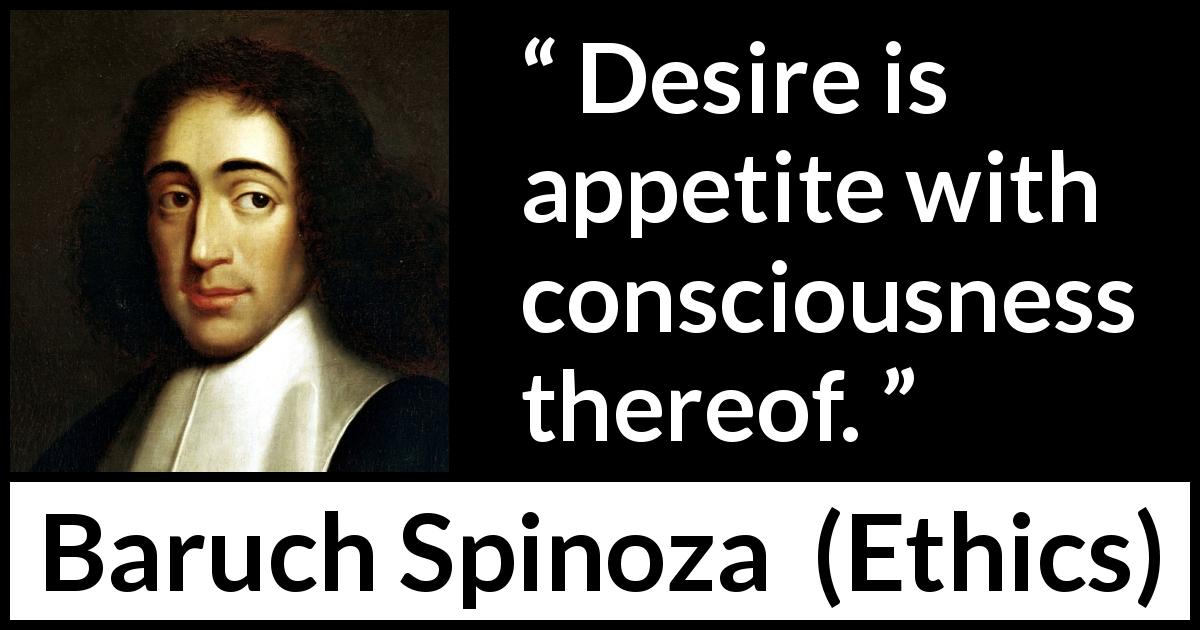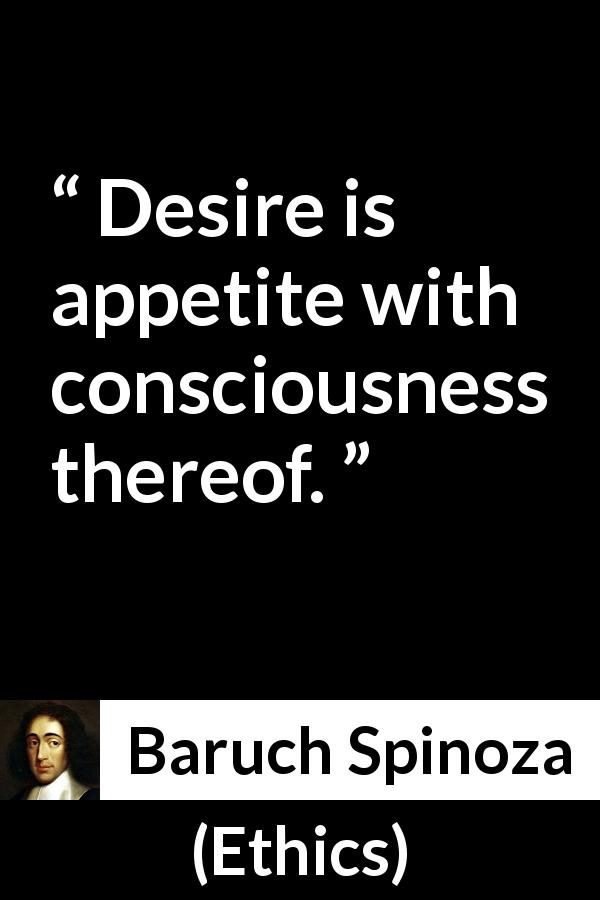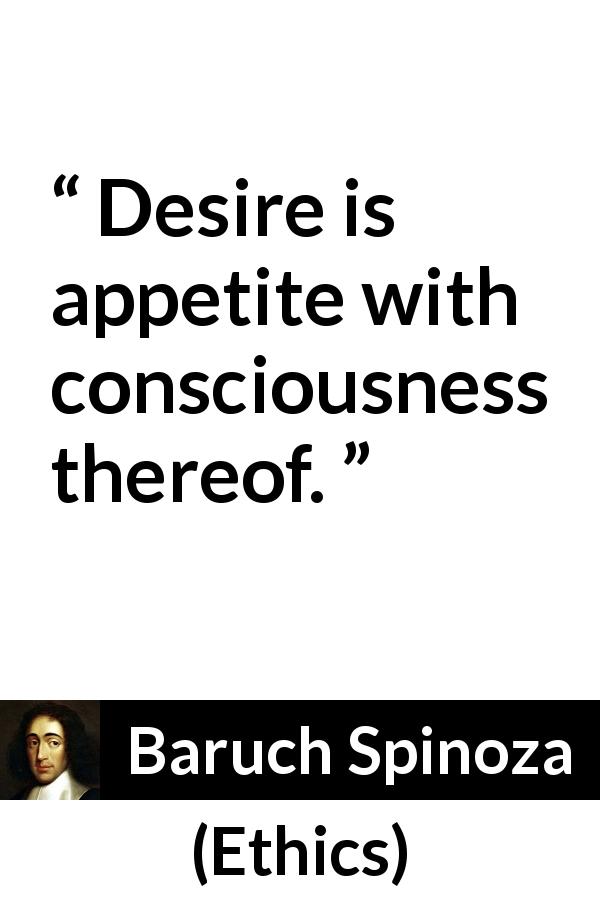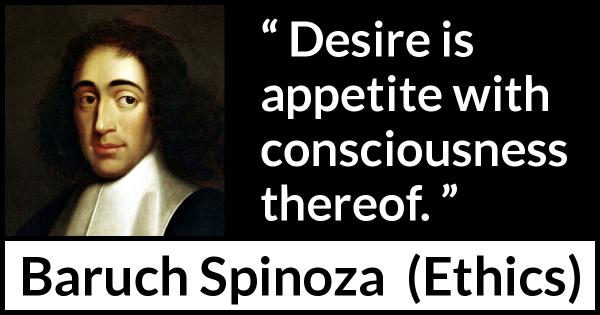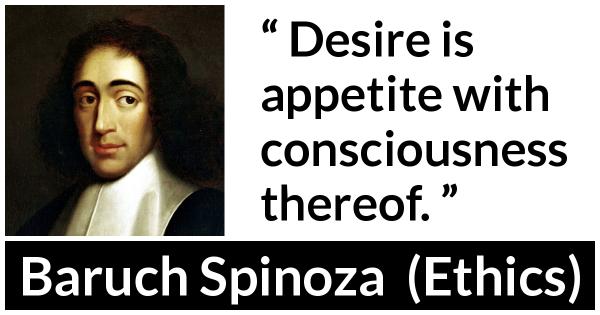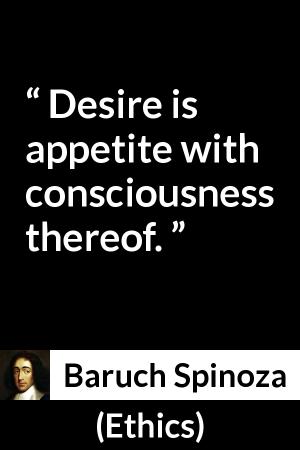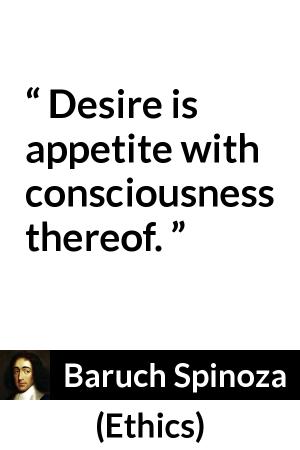“ Desire is appetite with consciousness thereof. ”
Baruch Spinoza, Ethics (1677). copy citation
| Author | Baruch Spinoza |
|---|---|
| Source | Ethics |
| Topic | desire consciousness appetite |
| Date | 1677 |
| Language | English |
| Reference | |
| Note | Translated by R. H. M. Elwes |
| Weblink | http://www.gutenberg.org/files/3800/3800-h/3800-h.htm |
Context
“Note.—This endeavour, when referred solely to the mind, is called will, when referred to the mind and body in conjunction it is called appetite; it is, in fact, nothing else but man's essence, from the nature of which necessarily follow all those results which tend to its preservation; and which man has thus been determined to perform.
Further, between appetite and desire there is no difference, except that the term desire is generally applied to men, in so far as they are conscious of their appetite, and may accordingly be thus defined: Desire is appetite with consciousness thereof. It is thus plain from what has been said, that in no case do we strive for, wish for, long for, or desire anything, because we deem it to be good, but on the other hand we deem a thing to be good, because we strive for it, wish for it, long for it, or desire it.” source
Further, between appetite and desire there is no difference, except that the term desire is generally applied to men, in so far as they are conscious of their appetite, and may accordingly be thus defined: Desire is appetite with consciousness thereof. It is thus plain from what has been said, that in no case do we strive for, wish for, long for, or desire anything, because we deem it to be good, but on the other hand we deem a thing to be good, because we strive for it, wish for it, long for it, or desire it.” source
